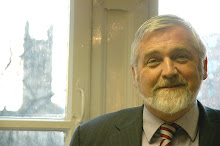The more things change the more they are the same
I recently had the good fortune to visit the Elgar
Birthplace Museum just outside Worcester. The Museum is a small but fitting
tribute to one of England’s great modern composers. The following text is taken
from a manuscript on display amongst the exhibits. It is astonishingly
pertinent and deserves to be much more widely known as a telling description of
the fact that technological impacts on life have been going on for decades and
not just since the invention of social media.
“The present
generation takes the inventions of the last few years calmly and allows the
most revolutionary mechanical appliances to enter into their lives without
surprise and without emotion.
The gramophone is one
of these marvels. It was necessary last week that I should ‘know’ a certain new
composition; it is of course necessary theoretically that I should hear all new
compositions – in time; but this occasion was peremptory. Being in the
twentieth century and within reach of His Master’s Voice, the procedure was
remarkably simple.
The telephone brought
me mysterious discs within ten minutes; ten minutes later I had heard the
composition played by an orchestra of the first rank under a no less noteworthy
conductor.
My thoughts go back to
days when the desire to know was just as keen, but the means of gaining
knowledge were few and difficult. In 1877 – 8 – 9, London was scantily supplied
with orchestral concerts: the provinces were in a worse plight.
The Crystal Palace
concerts under the direction of August Manns were undoubtedly the best and many new works
were produced and compositions of established repute were played which I wanted
to know.
I say ‘know’ and not
hear; it is possible to be either or both; scores were not easily obtainable;
if they had been procurable a reading would have satisfied my immediate wants. “
The document on display is the first page of a typed lecture
(?) which has been heavily edited by hand in ink. It is entitled “H.M.V.” What appears above is the final text as
edited by Elgar himself. It would be interesting to uncover any other early
documented examples of the role of technology in facilitating knowledge
transfer.
Derek Law

No comments:
Post a Comment